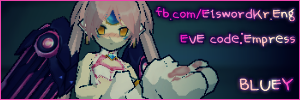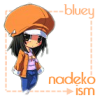|
Why is there "complex" kanji?
Link |
by
 on 2009-07-05 20:58:11
on 2009-07-05 20:58:11 |
|
By complex, I mean the ones with a lot of lines needing to be drawn. For example: 日本語 (Japanese) ニホンゴ (Japanese) What's the point of the first one?  |
|
Re: Why is there "complex" kanji?
Link |
by mewarmo990
on 2009-07-05 22:40:10
|
|
Er, I guess I should explain what the Japanese language is to you first. Japanese is written using three types of script: hiragana, katakana, and kanji. Hiragana and katakana characters each represent a certain pronunciation, and are also collectively referred to as kana. Kanji, on the other hand, are semi-ideographic characters borrowed from Chinese, and cannot be read by "sounding them out." Japanese would not work without kanji because there are many homonyms in the language and kanji is needed to distinguish the actual meaning of a word. For example, "nihon" means Japan (日本) but the counter for two long cylindrical objects would also be pronounced the same way (二本). Not to mention that there are no spaces in Japanese, so kanji makes it a lot easier to read than a jumble of hiragana. Basically, China's influence on the Japanese culture runs so deep that the Japanese language as it exists today would be inconceivable without kanji. The first "nihongo" you wrote is kanji. The second one is katakana. Katakana is usually used to write foreign words or as emphasis, while hiragana is the "normal" Japanese script, and would be the first thing you would learn.
Maka here is an wonderful example of why it's a bad idea to home school your children.
Maybe also a good example of why inbreeding is a bad idea, although the paternity test has not been done to say for sure.
-Gendou
|
|
Re: Why is there "complex" kanji?
Link |
by
|
|
mewarmo990 is right about it. if it's all hiragana you'll definitely have a hard time figuring out one word from another. another thing is that most kanji characters has a meaning. more often the kanji is used for its meaning and not its pronunciation. like in your example. I sure you know that japan is known as the land of the rising sun. the first two kanji represents sun(日) and origin(本). there are also many instances that a certain kanji will be pronounced differently according to its usage. like 今日 read as kyou = today. the first kanji 今(ima = now) and 日(hi = sun,day) putting them together gives the meaning today. kyou is how it was originally pronounced in Japanese. they use kanji's meaning in making their words but and read it as it mean using their natural language. its a bit complicated to explain. you more often find a particular kanji being used in different words and has a different pronunciation. more often it will be pronounced using the original Japanese word and not the kanji's original pronunciation. actually I think if I could master the written japanese language. I feel like I could read it faster that reading it in romaji. 2 to 4 characters can contain twice that amount in syllables. just something form an anime I just finished watching. 糸色 望(Itoshiki Nozomu). 望(nozomu although after looking for its meaning it is written as 望む I still don't know the reason why they dropped the む = mu at the end) this kanji means hope. the first I still don't know whats the first two kanji really trying to mean but if they are compressed together now looking like this 絶 also means cut. though it has no proper pronunciation in japanese it is used as some what like a prefix making the word it is attached to negative. and so we end up with 絶望 which is read in Japanese as zetsubŠ= despair. it would be like cut(絶) hope(望). also some kanji's are just a bunch of other kanji's compressed into one. though I'm not sure how does that work, sometimes they do make use of the individual kanji's meaning. like 木(ki = tree) and 森(mori = forest). mori is three 木 compressed together. I think the best way of understanding kanji is to read its meaning and not its pronunciation. as you will end up with a bunch of puns if you focus on pronunciation. |
|
Re: Why is there "complex" kanji?
Link |
by
|
|
i dunno why "kanji" are complex to some pipz..but kanji writing for me is..fun.. ;3 and yeah.. like darkzero999 and mewarmo990 said, japanese writing does consist 3 types of scripts.. but, usually japanese use kanji and hiragana, they only use "katakana" through borrow words like for example: スラムダンク (suramu danku) or in english, slam dunk.. ;3 |
|
Re: Why is there "complex" kanji?
|
| LoL I just learned that in my Japanese class last week. I feel Kanji is a tough one as well.....we haven't gotten into it yet (just an example or two) but i don't see the meaning of them. Like hi = sun is a box with a line through it(I don't have a Japanese Keyboard) and not a bright yellow circle (Just an example....I'm pretty sure I know why it can't be a circle) |
|
Re: Why is there "complex" kanji?
Link |
by
|
|
Lol, you see. Japanese learns how to write from the Chinese. I don't know how they changed the way to read 'em. But eventually, the Kanji used transformed into Hiragana and Katakana (If I weren't mistaken they were developed in Heian period). Anyway, Kanji is kinda necessary. It makes the sentence a lot more shorter for sure. Lemme give you an example 真月èšæœˆå§« ã—ã‚“ã’ã¤ãŸã‚“ã¤ãã²ã‚ Writing it with Hiragana sure is a little longer. Not to mention, you'll have multiple Idea when I write it like this: ã—ã‚“ Alright... that would be read as "Shin", but can you guess what it means? The meaning of the word "Shin" is more than just one =)  |
|
Re: Why is there "complex" kanji?
Link |
by emovampirebitesxx
on 2010-04-14 05:12:33
|
|
Learning Kanji is difficult, even i find myself hard (although im chinese). Katakana is only use in english phrases like pocket as ãƒãƒƒã‚±ã¨ or english same as Sam as サム. Hiragana is the easiest but who those who takes japanese require to learn kanji.. plus to write essay they provide genkoo paper (box writing), but to write eveything hiragana there no room left.. not all kanji are simply chinese but tranditional as well. (better watch out for it) what my teacher use to say is that japanese didnt borrow the chinese character they stole them ^^ |
|
Re: Why is there "complex" kanji?
|
|
I thought you where talking about actual complex kanji's haha, but yes kanji's are hard but thats the nature of the language. Remember Japanese is one of the easier language to pronounce, speak and to listen compared to english which is easier to write and read about. Some kanji looks difficult however they are the old kanjis that old people used to use, but has simplified as the time past. For instance this rarely gets used in everyday japanese 零ã€å£±ã€å¼ã€å‚ which are the numbers zero, one, two, three, or in the simpler kanji ゼãƒ(theres no zero but the kanji shown above, most people use katakana or the number 0) 一ã€äºŒã€ä¸‰ Also following on the chemical_o3's response ã—ã‚“, just how many words can that mean? æ–° new 芯 core 心 heart(mind) ä¿¡ trust 親 parent 神 God 震 shake, vibration 進 foward and so on. |
|
Re: Why is there "complex" kanji?
Link |
by
 |
|
kanji are used so that the students could shorten down the total hiragana letters used in essay, allowing them more space to expand their essays. kanji isnt that hard if you could relate them to everyday life happenings or things.. ^^ but katakana cant be translated into kanji,please note,as katakana are used for words which are borrowed(meaning the origin of the word is from elsewhere) cheerios~~ :3 |


